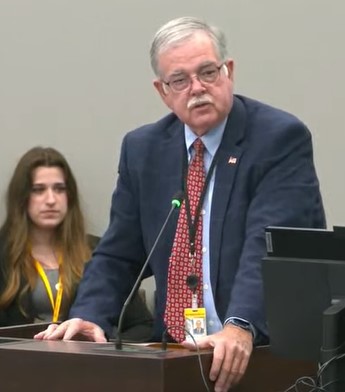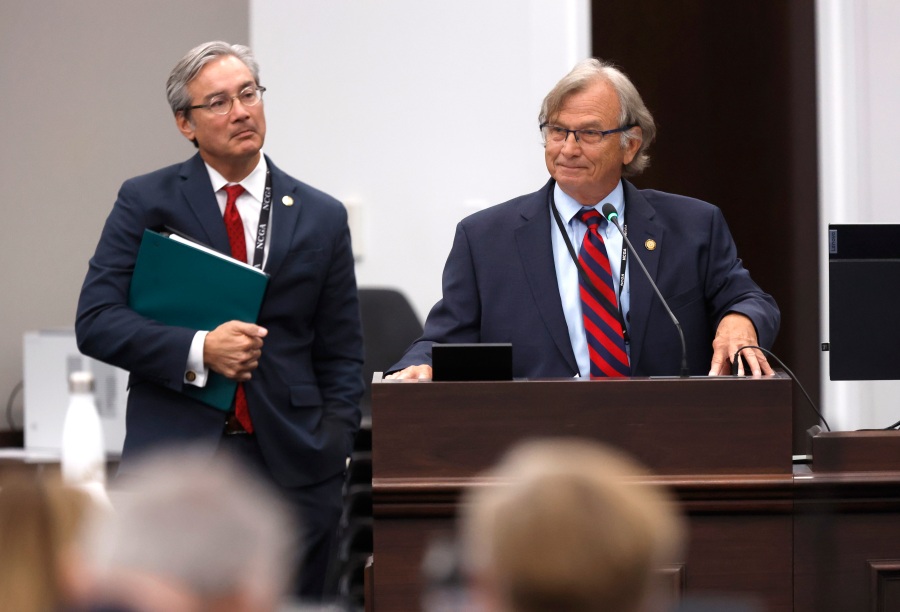
RALEIGH, N.C. (WGHP) – A bill that would make marijuana legal for medical treatment in North Carolina, an idea passed around for the past few years, may have to wait a couple more weeks before being picked up again.
The NC Senate passed Senate Bill 3, the “North Carolina Compassionate Care Act,” on March 1 with bipartisan support, but the House has taken no formal vote. That could change soon, state Rep. Donny Lambeth (R-Forsyth), one of the House Health Committee chairs, said Friday.
SB 3 is designed to allow physicians to prescribe cannabis products – including marijuana to smoke – for patients suffering from among 15 specific conditions listed in the bill. Medical marijuana is legal for some purposes in all but three states, including NC.
Critics are concerned that this would lead to the legalization of recreational marijuana – which is legal in 22 states – and that the medical effects of the usage are anecdotal and not based on science.
Health Chair Rep. Larry Potts (R-Davidson) led a discussion about SB 3 on March 30, but there was no vote taken. Two members of the public spoke against the bill.
But members also heard impassioned testimony from the bill’s primary sponsor – and the issue’s perennial champion – Sen. Bill Rabon (R-Brunswick), who in a moving and emotional detail described how using marijuana 24 years ago had allowed him to withstand powerful chemotherapy that ultimately saved his life from colon cancer.

“There is no science behind it, but I know, I know there are tens of thousands of people who could benefit like I did,” Rabon, now 72, said.
There has been no follow-up consideration of the bill in the Health Committee, and Potts and Lambeth said Friday that the matter would be discussed in the next few days by the House Republican caucus. The Health Committee meets every Tuesday and Thursday.
“We plan to update the Caucus this week,” Lambeth wrote Friday in an email to WGHP. “Then the bill could move to the floor as early as the last week in June. Slight chance it moves a little faster as we try and wind down this portion of our long session.
“I anticipate we break for the [July] 4th week. If we don’t finish all our work, we could return after the break. So there is nothing firm right now but a lot has to be done in the next three weeks.”
During that same time, the General Assembly also is negotiating details of a final biennial budget and is expected to take up a bill outlining new election rules and to draw new voting districts for Congress and the General Assembly to be used in 2024. There are numerous other bills awaiting votes at various stops along the law-making conveyor belt.
Rabon – whose cosponsors are Sens. Michael Lee (R-New Hanover) and Paul Lowe (D-Forsyth) – said in February that he had “spent three years on this bill” and“hopefully this will be the last year.”
Lee said he felt like the bill “has gone through 200 committee hearings” over the past few years.
In the spring of 2021, the Senate passed SB 711, 35-10, but the House didn’t take up the measure before adjournment about three weeks later. House Speaker Tim Moore (R-Cleveland) has said he thinks the members are more open to the idea of passing medical marijuana.
One of those who now believe is Lambeth, a retired hospital administrator and author of the Medicaid expansion that was signed into law earlier this year. He said in the Health hearing that he had “been on the fence” about medical marijuana but was swayed by testimonials from those suffering and a trip to a processing facility in Mississippi.
“Those who have gone through very difficult illness and disease – as you have, Sen. Rabon – said this is a way to administer the pain,” he told the community. “They said to me – and these are ministers and community leaders – please help us. They believe this [medical cannabis] can help.
“My biggest concern is that this is a step toward recreational marijuana. … But I see [in Mississippi] how this was regulated and controlled, and I had a different perspective.”
Research commissioned by the General Assembly in March shows that 83% of voters in North Carolina support legalizing medical marijuana, and only 13% oppose it, which is slightly more positive than in a similar poll in May 2022. The support is better than 3 out of 4 in every demographic breakdown other than “white evangelicals.”
What’s in the bill
- SB 3 lists 15 specific conditions that can receive cannabis treatment, including cancer, epilepsy, HIV/AIDS, ALS, sickle-cell, Parkinson’s syndrome, multiple sclerosis and post-traumatic stress disorder – or PTSD – which veterans groups back.
- There are a commission and advisory board that will be served by 4-year appointments and overseen by the NC Department of Health and Human Services to regulate this implementation.
- 10 licensed dealers based in North Carolina (at least two years) who each can operate up to eight outlets from seed to sale. They can have out-of-state partners. Those numbers might need to be addressed to reach saturation across all 100 counties.
- There is a $50,000 initial licensing fee and then a $10,000 a year recurring fee for each facility.
- The criminal law does not change, but law enforcement will have data on all those who are licensed, who prescribe and who have been approved for prescriptions.
- Prescribing physicians must go through 10 hours of training to be certified and then complete 3 hours of continuing training each year.
- Cannabis can be consumed through smoking, vaping or edible products.
- Implementation would be in 2024.
- The state is projected to realize about $44.4 million in new revenue by 2027-28. Retail sales are expected to reach about $504.3 million by 2028-29, based on a rate of $287 per ounce, to serve a projected 214,000 patients.
Suggest a Correction

